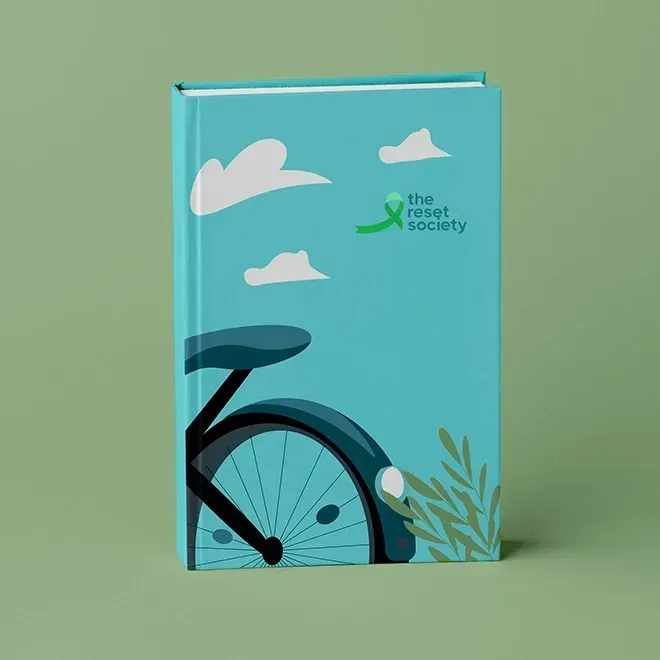⏳ Kick Off Launch Offer - Bonus + Free stuff has started!
How Sugar Can Contribute to Depression (and What to Do About It).
Short answer: High added sugar and high-GI carbs are tied to higher depression risk. Likely drivers: blood-sugar swings, inflammation, and gut microbiome shifts. Use this quick guide to cut sugar and steady mood. Educational only—consult your clinician.
How Sugar Can Contribute to Depression (and What to Do About It)
Key takeaways
Multiple studies link higher sugar or ultra-processed food intake with more depression over time; this is correlation, not proof of causation. Nature+1 ( pubmed )
Mechanisms include rapid glucose highs/lows, systemic inflammation, and gut-microbiome shifts that can influence mood circuits. PubMed+2PMC+2
A 2024 NHANES analysis found +28% higher prevalence of depression per +100g/day sugar (cross-sectional). PubMed
WHO advises keeping free sugars <10% of energy (ideally <5%). NCBI
Best first moves: swap sugary drinks, build protein/fiber breakfasts, and favor minimally processed foods.
How sugar can affect mood
High intakes of added sugar and high-GI foods can worsen blood sugar volatility, which is linked with lower mood and fatigue. Over time, sugary and ultra-processed patterns are associated with higher depression risk, while whole-food patterns are linked with lower risk. Mechanisms most discussed in the literature: glycemic swings, inflammation/HPA-axis stress, and gut-microbiome changes that influence brain signaling.
Deep Dive
1) Blood sugar highs & lows → mood instability
High-GI, high-GL diets spike insulin and can lead to reactive dips; repeated swings are tied to lower energy and mood. Cohort and clinical evidence connects higher dietary GI/GL to greater depression risk. PubMed
Tactic: anchor each meal with protein + fiber + healthy fat (e.g., yogurt + nuts + berries) to flatten post-meal glucose.
2) Inflammation & the stress response (HPA axis)
Depression is linked with elevated pro-inflammatory cytokines in many patients; sugar-heavy patterns can promote low-grade inflammation, which interacts with brain circuits that regulate mood and stress. PMC+1
Tactic: emphasize anti-inflammatory foods (vegetables, legumes, olive oil, fish), manage sleep and stress, and avoid routine sugar spikes.
3) Gut microbiome shifts
High added sugar and ultra-processed foods can reduce microbial diversity and short-chain fatty acids that support gut–brain signalling. Dysbiosis is linked with mood symptoms in observational studies; emphasising fibre-rich and fermented foods can help restore balance.PMC+1
Tactic: add fermented foods (e.g., kefir) and prebiotic fibers (onions, beans, oats).
4) Ultra-processed foods (UPF) as a sugar proxy
UPFs often bundle sugar with refined starches and additives. In a large cohort of ~31k women, higher UPF intake—especially artificially sweetened beverages—was associated with increased incident depression risk. JAMA Network+1
Tactic: cook more from single-ingredient staples; scan labels for “added sugar,” syrups, and sweeteners.
5) What counts as “free/added” sugar—and how much is “too much”?
WHO: keep free sugars <10% of total energy; lowering to <5% (~25 g/day) offers additional benefits. “Free sugar” includes added sugars and sugars in juices, syrups, and honey. NCBI
Proof (selected studies & numbers)
BMC Psychiatry 2024 (NHANES, n=18,439): each +100 g/day sugar ↔ +28% higher prevalence of depression (adjusted). Cross-sectional; cannot prove causality. PubMed
Whitehall II prospective cohort (Scientific Reports 2017): higher intake of sweet foods/beverages predicted later depression in men after accounting for reverse causation. Nature
Systematic review/meta-analysis (2019): GI/GL showed positive associations with depression in cohort studies; GL effects seen in trials. PubMed
UPF cohort (JAMA Netw Open 2023): higher UPF (esp. artificially sweetened beverages) ↔ greater incident depression risk. JAMA Network
Comparisons & alternatives
“Natural” vs added sugar: fruit-in-fiber matrix behaves differently than free sugars, but juice/honey are still free sugars under WHO definitions. NCBI
Diet drinks/artificial sweeteners: not a free pass—higher intake of artificially sweetened beverages was associated with more depression in the UPF cohort; use moderation. JAMA Network
Bigger picture: nutrients (omega-3s, B-vitamins, iron), sleep, exercise, social connection, and therapy all matter; sugar is one modifiable lever.
FAQ
Does sugar cause depression?
No single food “causes” depression. However, higher sugar/UPF diets are consistently associated with more depression; mechanisms (glycemic swings, inflammation, microbiome) make the link biologically plausible. Nature+1
How much sugar is safe?
Aim for <10% of energy from free sugars, preferably <5% (~25 g/day). NCBI
Are fruit sugars okay?
Whole fruit (fiber intact) is generally fine; fruit juices count as free sugar. NCBI
Are diet sodas better than regular?
They avoid sugar spikes, but some cohorts link artificially sweetened beverages with higher depression risk; water, sparkling water, or unsweetened tea are safer defaults. JAMA Network
How quickly might mood improve after cutting sugar?
Varies—some people notice steadier energy in 2–4 weeks; if you have persistent depressive symptoms, see a clinician.
Should I quit sugar entirely?
You don’t need perfection. Focus on reducing added sugars and stabilizing meals.
Author: The Reset Society
Last updated: 2025-09-15
Try the 14-Day Lower-Sugar Mood Experiment
Replace sugary drinks with water/unsweetened tea.
Build protein + fiber breakfasts (e.g., eggs + oats or yogurt + nuts + berries).
Swap desserts for fruit + Greek yogurt 5 nights/week.
Track mood/energy (1–10) daily; adjust.
Or Try Our Full Reset System created by a former Patient!
No more burnouts and deep depression.
"Reset" your morning.
Rebuild your day.
With a system that works!
The Proven Reset & Rebuild System—created by a former patient to help you beat daily fatigue.

Always tired?
Time for Less fog & More you..
Not a hack. A complete daily system that quietly upgrades the basics your body needs—so energy has a chance to return.
video lessons
proven checklists
Private progress
The Proven Reset & Rebuild System—created by a former patient to help you beat daily fatigue.
“Small steps. Big energy. Our System-Reset shows you exactly what to do each day—no overwhelm, just progress. Start your Reset today.”
The Reset Society LLC
A former exhausted patient turned into the founder—he built the Proven Reset & Rebuild System to help beat daily fatigue.
LLC C12556434 © 2025 the reset society





